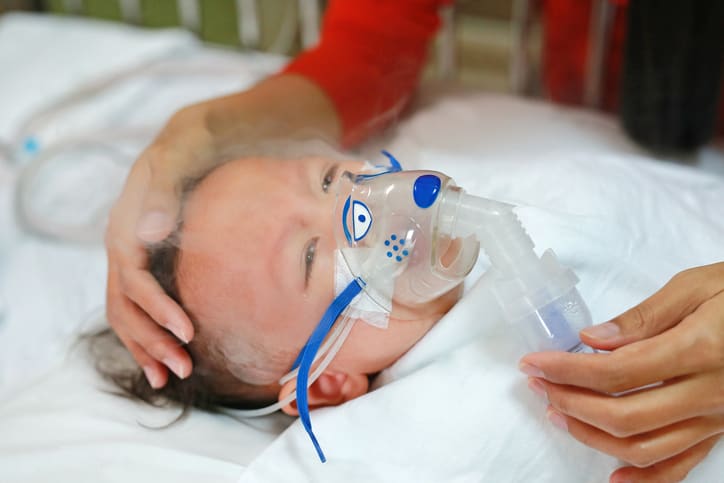Say no to norovirus. Good hygiene can help you avoid this contagious bug.
[5 min read]
In this article:
- Increased viral activity this winter includes an increase in cases of norovirus, a highly contagious stomach and gastrointestinal virus.
- Symptoms include intense vomiting and diarrhea.
- Proper handwashing is the single most important thing we can do to prevent norovirus infections.
Following the outbreak of COVID-19 and its variants, we have seen
increased activity among many viruses, including recent, serious spikes in RSV and influenza. Now,
according to recent data from the
U.S. Centers for Disease Control and Prevention (CDC), cases of norovirus, a common, contagious viral infection that includes unpleasant gastrointestinal symptoms like vomiting and diarrhea, are on the rise across the United States. Norovirus infections rise each year during wither months, with an average of some 2,500 cases reported between the months of November and April. Cases are prevalent in places where people are in close proximity and touch contaminated surfaces. The virus can be common places like schools and day care centers.
We spoke with Evan Sylvester, senior director of infection prevention at Providence Swedish, about the current norovirus outbreak and important steps we can take to protect ourselves.
What is norovirus?
Norovirus is a virus that causes an illness of the same name. It’s commonly referred to is gastroenteritis, stomach flu or food poisoning. Norovirus can cause severe inflammation of the stomach and intestines; typical symptoms include severe stomach pain, projectile vomiting and diarrhea. Some people may develop a fever. The virus can cause young children, older people and those with compromised immune systems to become severely dehydrated. In rare cases, the virus can require hospitalization or be fatal.
How contagious is the virus?
Norovirus is extremely contagious! And people who have it are contagious from the onset of the illness to two or three days after they begin recovering. In fact, people are most contagious when their symptoms begin and immediately after symptoms subside However, you can shed low levels of the virus for several weeks after symptoms subside. You can get Norovirus more than once as the virus is always changing and our bodies do not create long term immunity. Norovirus is a very hearty; it can survive freezing and heat up to 140F. Additionally, it is resistant to many alcohol-based disinfectant, so bleach should be used to disinfect surfaces. Norovirus spreads rapidly in closed environments like schools and day care centers—and in family homes. That’s why entire families can get sick if one person is infected. It can also contaminate food and water. It’s a very common source of food borne illness.
How does norovirus spread?
The virus spreads via fecal-oral transmission from infected individuals contaminating food, surfaces, or through direct contact with the vomit or feces of infected individuals. For example, if an infected individual with unwashed hands touches a doorknob and you touch the doorknob then touch your mouth, there’s a good chance you’ll pick up the virus. Parents of little ones can easily get sick by changing diapers if they don’t perform hand hygiene or from airborne particles transmitted through the air by a vomiting child. You can pick it up by shaking contaminated hands with an infected person and then touching your own mouth. This is why we are constantly reminding people to wash their hands thoroughly and keep your hands away from your face as much as possible! And why every person should wash their hands with soap and water after going to the bathroom and before eating.
How do I know whether I have the norovirus, food poisoning or something else?
Most of the time, you won’t be able to tell the difference and generally speaking it won’t matter unless you need to be hospitalized or you have a condition that requires identifying the source of your illness. There are tests that can use stool samples, but those are rarely used and expensive.
Can I get vaccinated to prevent the spread of norovirus? How can I treat it?
There is no vaccine treatment for norovirus, nor is there a specific drug to treat the illness. Because primary symptoms include vomiting and diarrhea, rehydration is vital for treating norovirus. In some rare cases, people may need IV rehydration. When symptoms subside, stick with a bland diet until you feel better. A similar virus, rotavirus, that infects infants and young children, does have a vaccine to prevent illness and has been shown to be effective. This vaccine is not indicated for older children or adults.
CDC guidance recommends completion of the vaccine series for children before they turn 8 months old. Regarding prevention, be sure to wash your hands after using the bathroom to prevent transmission to others, but also before eating to protect yourself. If someone in your house has the virus, be sure to clean surfaces with bleach; while some disinfectants are effective in killing norovirus, most household disinfectants don’t kill the virus. But the single most important thing we can do for prevention is
wash our hands regularly with soap and water! While alcohol-based hand sanitizers are very effective when your hands are not visibly soiled, do not use hand sanitizers in lieu of soap and water after using a bathroom or before eating because they are not as effective at killing norovirus.
Learn more and find a physician or advanced practice clinician (APC)
If you have questions about vaccinations or your child’s wellness health, Swedish Pediatrics can help. If your kids aren’t up to date on immunizations, particularly the measles vaccine, call their pediatrician today to schedule a visit.
You can contact Swedish Primary Care to schedule an appointment with a primary care physician or advanced care clinician. If you or a child has symptoms, you can connect virtually with a member of your care team who can review the symptoms, provide instruction and follow up as needed. With Swedish ExpressCare Virtual you can receive treatment in minutes for common conditions such as colds, flu, urinary tract infections, and more. If you don’t have a doctor, use our provider directory to find a specialist or primary care physician near you.
Information for patients and visitors
Additional resources
Protect your family from RSV, because it isn't just a cold
Is it strep throat or a sore throat?
Whooping cough is making a comeback. Here’s what you should know.
Measles cases are on the rise. Here's what you should know.
This information is not intended as a substitute for professional medical care. Always follow your healthcare professional's instructions.
Providence Swedish experts in the media
Follow us on Facebook, Instagram and X.




